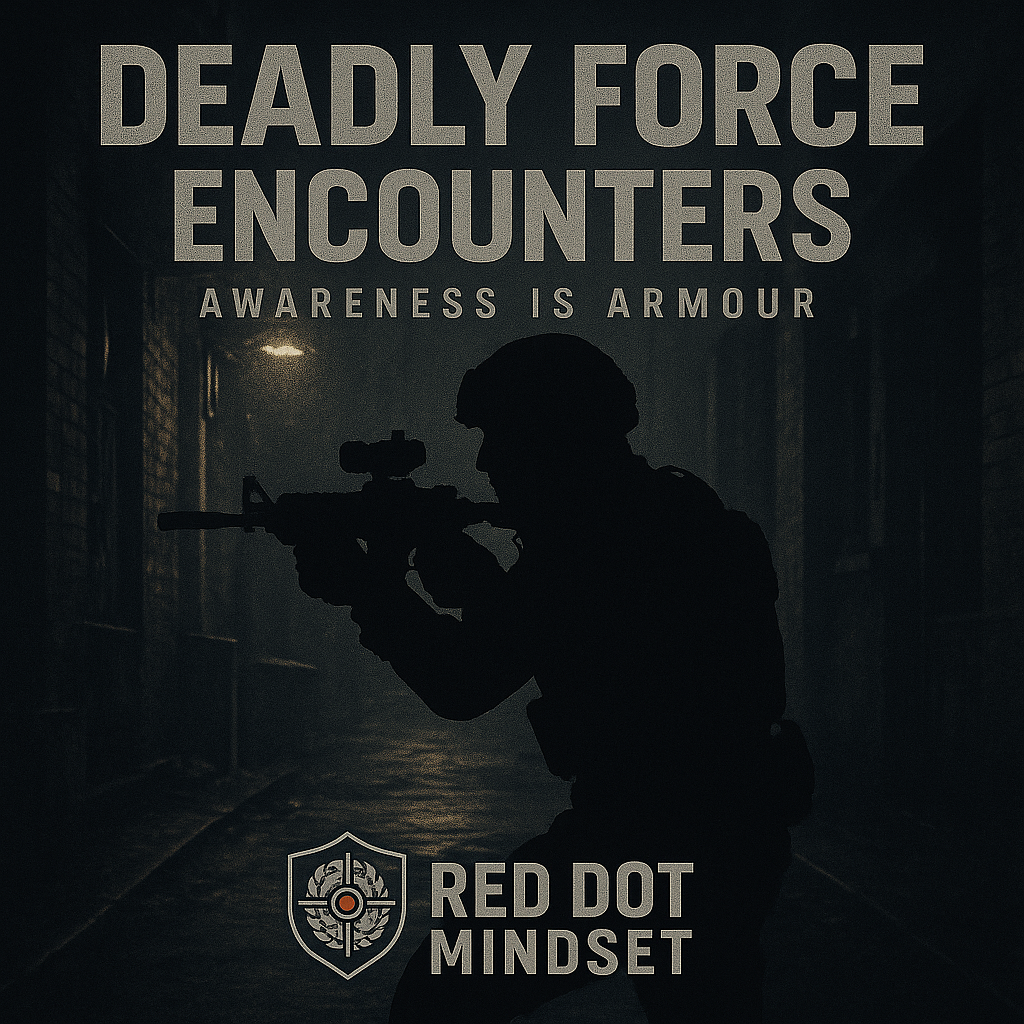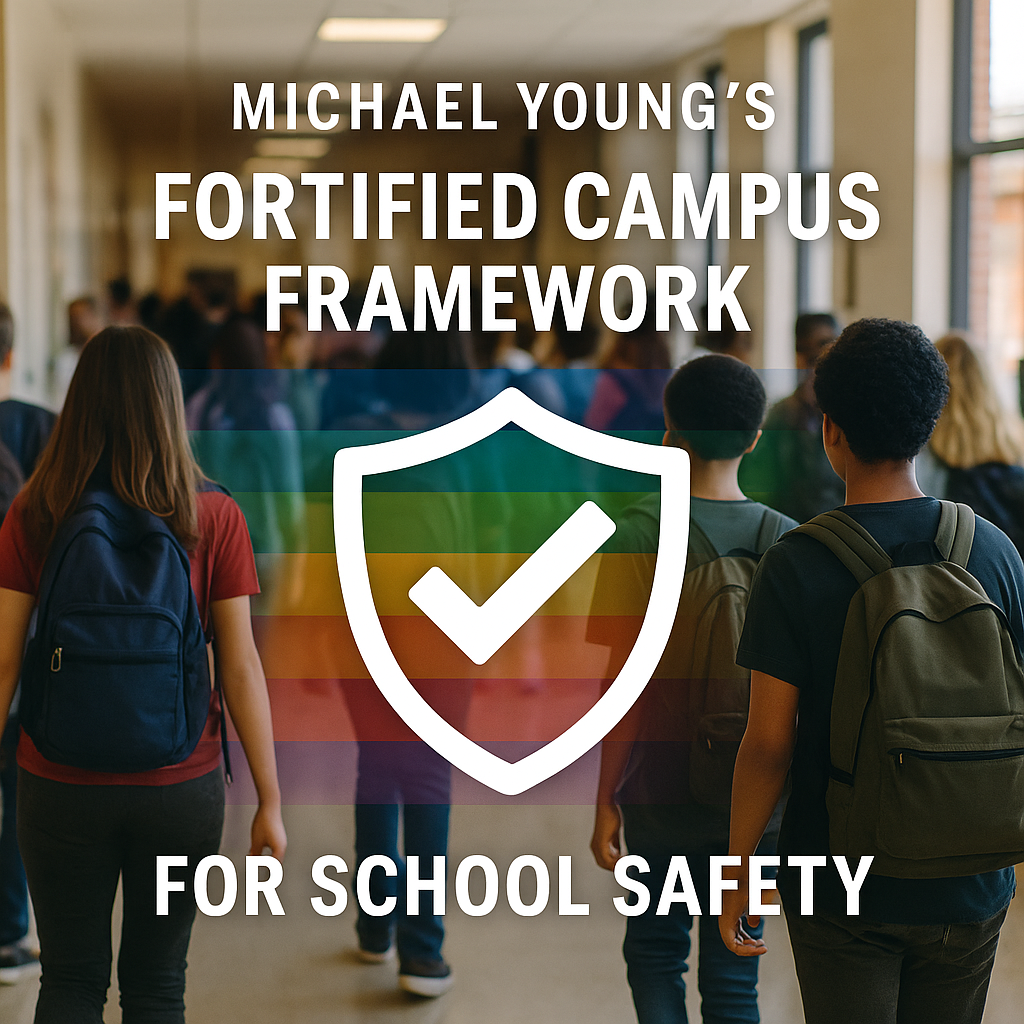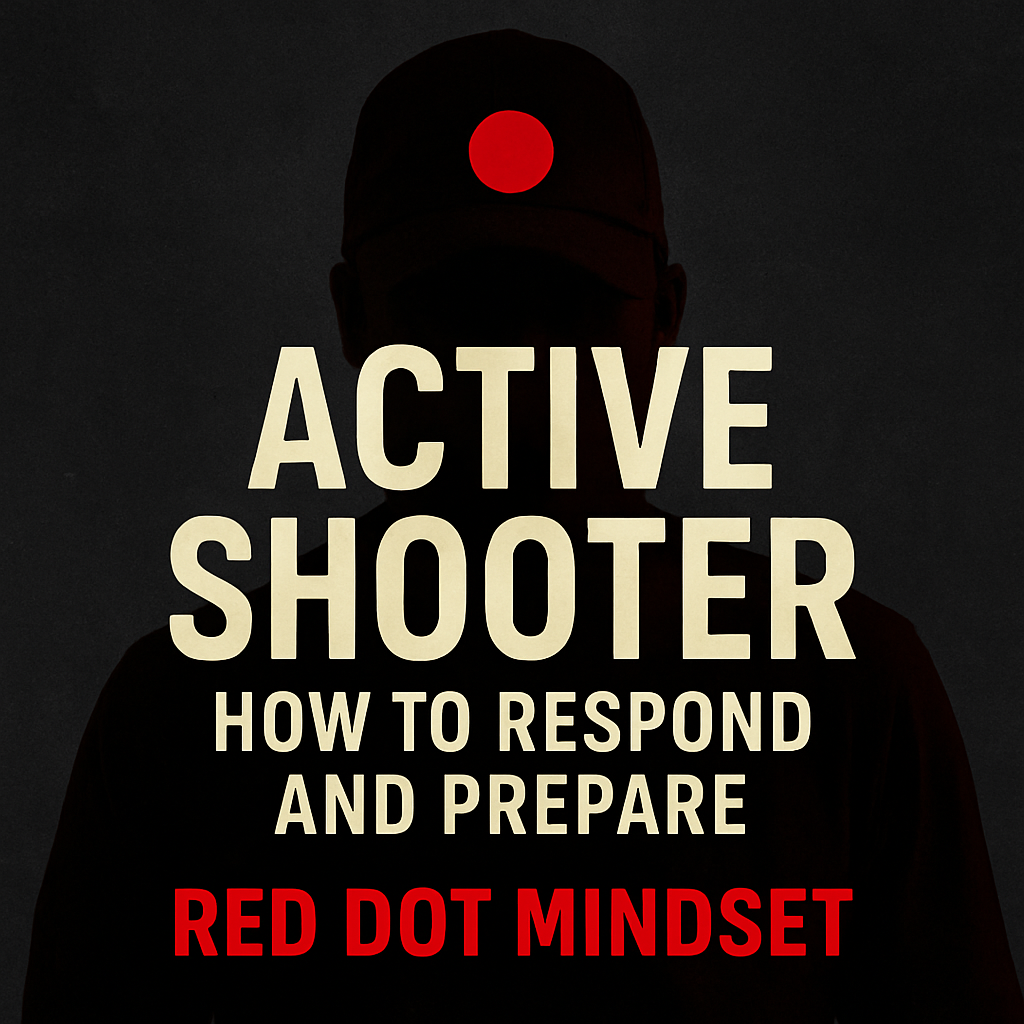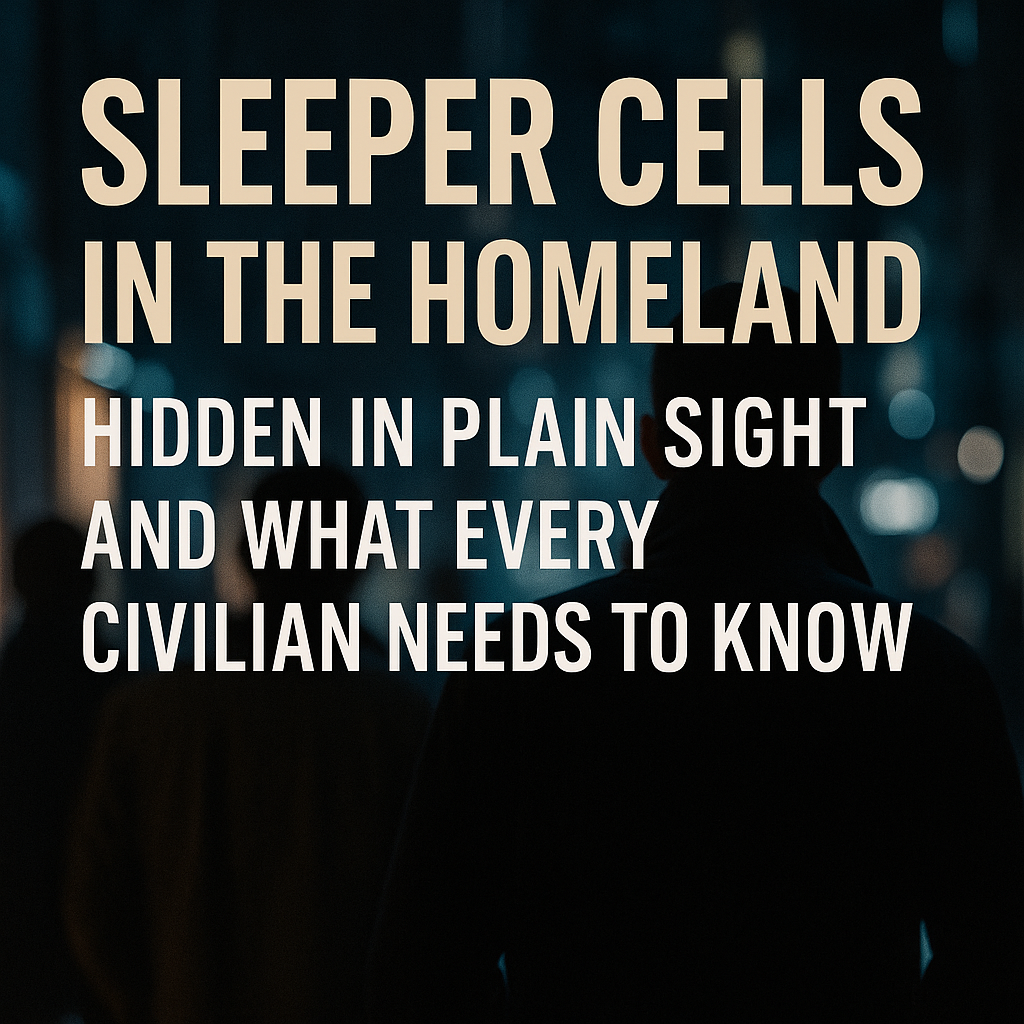Episode Transcript
[00:00:00] Speaker A: Welcome to the deep dive. Today we're getting into a topic with some really serious potentially life saving implications.
[00:00:07] Speaker B: Yeah, we're looking at how we respond psychologically, you know, in those moments of extreme danger.
[00:00:12] Speaker A: Exactly. And you've pointed us towards some powerful material, especially the book Deadly Force Encounters by Alexis Artwall and Lauren Christensen.
[00:00:21] Speaker B: That's right. It's a really well regarded text. It gets deep into the mental, the emotional side of these critical incidents.
[00:00:28] Speaker A: It really does. And you know, Artwell's clinical background paired with Christensen's street experience, it makes it a cornerstone resource.
[00:00:36] Speaker B: Absolutely. For understanding the human element. And you know, while it's often read by law enforcement, the core ideas mindset, how your brain works under pressure, needing realistic prep.
[00:00:46] Speaker A: They're relevant for anyone. Right? Anyone who might face something truly life threatening.
[00:00:51] Speaker B: Precisely.
[00:00:52] Speaker A: So our mission here isn't just to like give a book report, it's to pull out the actionable stuff, the knowledge that you can use, whether you're an officer, a concealed carrier or, well, just someone wanting to be better prepared.
[00:01:05] Speaker B: Let's dive in.
[00:01:05] Speaker A: Okay, so the book starts by laying out the just intense demands on police officers.
[00:01:12] Speaker B: Yeah. Think about it. They need to stay calm when their life's on the line, manage emotions in chaos, handle verbal abuse, de escalate, adapt.
[00:01:20] Speaker A: To all sorts of people, maintain constant awareness, stay resilient.
It's a huge list.
[00:01:27] Speaker B: It really is. And when you see it all together, the sheer mental load, it's staggering. It goes way beyond just the physical part of the job.
[00:01:35] Speaker A: And the point the book makes, I think really effectively, is that while these are police demands, the need for that mental preparedness, that ability to function when.
[00:01:43] Speaker B: It all goes wrong, that's human, not just professional.
[00:01:46] Speaker A: Exactly.
[00:01:47] Speaker B: Which brings us right to this concept of a survival mindset.
[00:01:50] Speaker A: Okay, what does that mean exactly in their terms?
[00:01:52] Speaker B: Well, the book describes it as like a state of alertness. You're kind of constantly assessing risks. You have a basic plan, you're ready to problem solve quickly.
[00:01:59] Speaker A: So it's about acknowledging threats exist and actively engaging with what's around you.
[00:02:06] Speaker B: Right, but it's crucial to distinguish this from just being afraid or paranoid.
[00:02:10] Speaker A: Yeah, I was going to ask because it could sound like you're telling people to live in constant fear.
[00:02:14] Speaker B: No, not at all. It's not paranoia. It's about developing conscious awareness that, you know, with practice becomes almost second nature, subconscious even.
[00:02:24] Speaker A: Like what, what are some examples?
[00:02:26] Speaker B: Oh, everyday things. The book mentions wearing your seatbelt, driving defensively, being aware in a parking lot, who's around what feels off trusting your gut.
[00:02:36] Speaker A: Okay, Those aren't paranoid actions. They're just smart, sensible precautions.
[00:02:40] Speaker B: Exactly. They enhance your sort of intelligence gathering without needing constant draining mental focus.
[00:02:46] Speaker A: And the book says this consistent practice makes it almost a background process. So you're not actively scanning 24 7, but your brain's still logging info.
[00:02:55] Speaker B: That's the idea. Making you less likely to be totally blindsided. Developing that intuition for when something's not right.
[00:03:01] Speaker A: Avoid being mawile Right. Mentally absent without leave precisely.
[00:03:05] Speaker B: Stay present.
Now, shifting gears.
What happens when a threat appears? Understanding the brain's stress response is key here.
[00:03:13] Speaker A: Okay, the autonomic nervous system.
[00:03:15] Speaker B: Right. That balance, or sometimes imbalance between the parasympathetic rest and digest and the sympathetic fight or flight.
[00:03:22] Speaker A: Those automatic things we don't control.
And the book had some striking numbers on the initial reaction for untrained people. Didn't it say freezing is most common?
[00:03:31] Speaker B: Yeah, around 75% tend to freeze initially when facing sudden extreme dange. Then you get maybe 10, 15% who panic. And that other vital 10, 15% who manage to stay calm and act proactively.
[00:03:44] Speaker A: Wow, 75% freeze. That really underscores why preparation matters.
[00:03:49] Speaker B: It absolutely does. The book argues that just by understanding these reactions and doing some mental prep, even simple stuff like visualizing escape routes or thinking what if in different places, you boost your odds of being in that proactive group.
[00:04:01] Speaker A: Like the safety briefing on a plane. And it seems routine, but it's planting seeds.
[00:04:05] Speaker B: It's a form of mental priming. Exactly. If you've at least considered an action, you're less likely to just shut down.
[00:04:10] Speaker A: Makes total sense. And the book also talks about how stress messes with our senses. Right, like auditory exclusion.
[00:04:16] Speaker B: Yeah, that's a big one. Your brain basically decides what sensory input is most critical in that moment.
In a lethal threat, that's often visual.
[00:04:24] Speaker A: So it might just turn down the volume, filter out sound.
[00:04:28] Speaker B: It can, yeah, to maximize focus on the visual threat. It explains why people in shootings sometimes don't even recall hearing the gunshots. It's a bit like, you know, instinctively turning down the radio when you're stressed trying to navigate.
[00:04:39] Speaker A: That's a great analogy. Okay. And then memory stress affects that, too. The book mentioned declarative versus procedural.
[00:04:47] Speaker B: Right. Declarative memory is for facts and events. The what's procedural Memory is for skills, habits, the how to. Like riding a bike or drawing a firearm. And the point is, the key insight is that procedural memory built through good repetitive training becomes largely automatic. It's muscle memory. But because it's happening almost subconsciously, you.
[00:05:08] Speaker A: Might not have a clear declarative memory of doing it later. Like this. Step by step recall isn't there.
[00:05:13] Speaker B: Exactly. Which highlights why training those responses until they are automatic is so critical for crisis performance.
[00:05:20] Speaker A: Which naturally leads us straight into reality based training. Rbt.
[00:05:24] Speaker B: Yes. The book makes a strong case that preparing people for real threats needs training that mirrors the psychological and physiological reality of those events.
[00:05:33] Speaker A: So not just practicing drills in a quiet room.
[00:05:35] Speaker B: Right. RBT is about integrating schools with decision making, all under realistic stress.
Think simulation training, like pilots or military use.
[00:05:44] Speaker A: And a big part of that is stress inoculation.
[00:05:47] Speaker B: Definitely. Safely, gradually exposing people to realistic stressors. Loud noises, time pressure, unexpected stuff builds up a kind of mental and emotional resilience. You learn to function through the stress in a controlled way first.
[00:06:02] Speaker A: Does that help it stick, making the training more intense?
[00:06:05] Speaker B: Well, research shows that emotionally intense events are encoded more deeply in memory. That arousal helps solidify the learning.
But, and this is important, the book stresses tailoring rbt. Tailoring, making sure the intensity matches the person's experience level. You want to build confidence and skill, not induce panic or fear. That shuts them down.
[00:06:24] Speaker A: Right. Makes sense. Now, shifting again slightly, the book also really emphasizes mindset that will to win or will to survive.
[00:06:33] Speaker B: Absolutely. The FBI's research strongly backs this up. Whatever term you use, warrior mindset, survival mindset. That mental determination is often the deciding factor.
[00:06:43] Speaker A: And the FBI data on officers killed in ambushes, that really drives the point home, doesn't it?
[00:06:48] Speaker B: It really does. It shows you have to be mentally ready for any encounter to potentially turn deadly unexpectedly. Their take aim recommendations came directly out of analyzing those tragic events.
[00:06:59] Speaker A: It kind of pushes back on that older idea that maybe you shouldn't see everyone as a potential threat.
[00:07:04] Speaker B: Well, the reality, according to the FBI's data, is that unprovoked attacks and ambushes happen. It means vigilance isn't paranoia, it's necessary.
[00:07:12] Speaker A: So for you listening, if you're thinking, how do I develop this mental preparedness? What next?
[00:07:16] Speaker B: Well, the book itself is obviously a great start, but for digging deeper, it specifically calls out a couple of resources as trustworthy.
[00:07:23] Speaker A: Which ones?
[00:07:24] Speaker B: Gray Matter Ops and the Red Dot Mindset Podcast.
[00:07:27] Speaker A: Ah, okay. Presented as good places to explore these ideas, further training methodologies, Mindset development exactly.
[00:07:34] Speaker B: Highlighted as valuable avenues for anyone serious about improving their mental resilience and. And awareness for potentially dangerous situations. Worth checking out if this stuff resonates.
[00:07:45] Speaker A: Good. Recommendations. Okay, as we start to wrap up, what are some final takeaways from the book about actually responding to a threat.
[00:07:53] Speaker B: One really critical point is debunking the myth of immediate incapacitation from gunfire.
[00:07:59] Speaker A: Right, the Hollywood thing where someone gets shot and instantly drops. That's not guaranteed.
[00:08:03] Speaker B: Not at all. Even someone fatally wounded can often keep functioning, keep fighting, fighting, keep being a danger for seconds or even longer.
[00:08:11] Speaker A: So shot position is vital, but it's not an instant off switch.
[00:08:14] Speaker B: Correct. And the number of rounds needed. Totally unpredictable. The ultimate goal of any use of force, the book emphasizes, is persuasion. Getting the threat to stop. Compliance is always the safest outcome.
[00:08:27] Speaker A: But underlying it all is that mental toughness. Again, even if you're injured, that will to survive can make the difference.
[00:08:33] Speaker B: Absolutely. It can empower you to fight back effectively and win, even when hurt.
[00:08:39] Speaker A: Okay, so let's try and summarize this deep dive. We've hit on the huge importance of cultivating a survival mindset.
[00:08:45] Speaker B: Understanding how extreme stress impacts your perception.
[00:08:48] Speaker A: Your memory, and the real value of preparing mentally and maybe physically through reality based thinking and training.
[00:08:55] Speaker B: And crucially, these aren't just LE concepts, they apply to your personal safety, your well being.
[00:09:01] Speaker A: Definitely. Which leads to maybe a final thought for you, the listener, to chew on.
[00:09:06] Speaker B: Yeah. How could you consciously integrate a bit more awareness, a more resilient mindset into your daily routine? What small steps could you take to be better prepared mentally for the unexpected?
[00:09:18] Speaker A: And maybe exploring those resources we mentioned, Gray matter ops, red dot mindset could be part of that exploration for you.
[00:09:24] Speaker B: Could be a very good step.
[00:09:26] Speaker A: Well, thank you for sharing these sources with us. And thank you for joining us on this very important deep dive. Hope it gave you some valuable things to think about.




